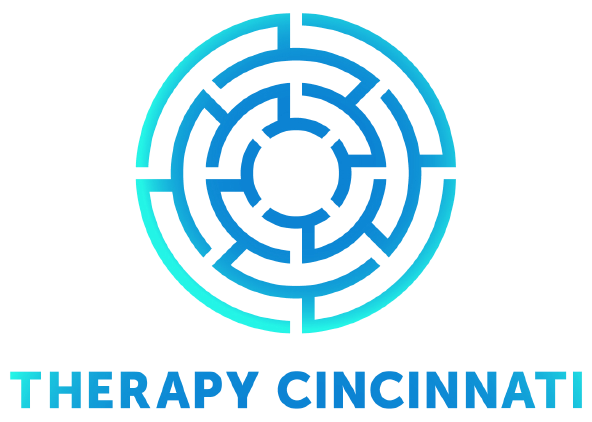Today, let's explore an important topic that often intertwines with depression: self-criticism. As a therapists that work with depression, we had the opportunity to work with many individuals who struggle with depression, and one recurring theme that arises is the presence of self-critical thoughts. In this article, we'll delve into the connection between self-criticism and depression and explore how understanding this link can be a crucial step towards healing.
Understanding Depression
Before we delve into the role of self-criticism, it's essential to understand depression itself. Depression is not just a feeling of sadness or a temporary low mood; it's a complex mental health condition that affects the way we think, feel, and behave. It can manifest differently for each person, but common symptoms include persistent sadness, loss of interest in previously enjoyed activities, changes in appetite and sleep patterns, low energy levels, difficulty concentrating, and thoughts of worthlessness or even suicide.
Here in Cincinnati, we often see depression increase in the winter when it’s often cloudy, but the truth is depression is something that occurs all year long. It’s important to know that depression doesn’t have a “season”, and you can feel depressed at any time.
The Vicious Cycle of Self-Criticism and Depression
Now, let's talk about self-criticism. We all engage in self-evaluation to some degree, but when it becomes self-criticism, it can be incredibly destructive. Self-criticism involves a harsh and unforgiving inner dialogue, where we constantly put ourselves down, focus on our flaws, and hold impossibly high standards. This negative self-talk can create a vicious cycle that perpetuates and worsens depression.
When it comes to self-criticism and depression, they often go hand in hand, creating a harmful cycle. Imagine feeling down or experiencing a setback in life. It's in these moments that self-criticism tends to rear its ugly head. You might find yourself saying things like, "I'm such a failure," or "I can't do anything right”, or “why can't I just snap out of it? I'm so weak."
These self-critical thoughts reinforce negative beliefs about ourselves and can intensify the feelings of sadness, hopelessness, and despair that are characteristic of depression. In turn, depression can magnify self-criticism, making it even more difficult to break free from this destructive cycle.
The Roots of Self-Criticism
To understand why self-criticism and depression often intertwine, it's important to consider the underlying factors that contribute to their connection. Many individuals who experience depression have encountered challenging life experiences such as trauma, abuse, or difficult relationships. These experiences can shape our beliefs about ourselves and the world around us.
Self-criticism often emerges as a defense mechanism. We might believe that if we criticize ourselves first, we can protect ourselves from the pain of external criticism or rejection. It's as if we're trying to shield ourselves from vulnerability. However, this self-protective strategy ultimately backfires, as self-criticism only perpetuates our internal suffering.
The Impact of Self-Criticism on Depression
Self-criticism can have a profound impact on the development and maintenance of depression. When we constantly berate ourselves, it reinforces negative self-perceptions and erodes our self-esteem. Imagine for a moment a happy, confident person. Suppose we were to have them constantly be around someone who was constantly negative about them and the people and things around them. It wouldn’t take long for that happy confident person to start to feel more down and negative about themselves.
In addition to this, we may begin to actually believe that we are inherently flawed, unlovable, or incapable. These self-beliefs contribute to feelings of worthlessness and can deepen our depressive symptoms.
Moreover, self-criticism often leads to a heightened sense of perfectionism. We set impossibly high standards for ourselves and feel intense pressure to meet them. When we inevitably fall short, as all humans do from time to time, we criticize ourselves harshly, reinforcing the cycle of negativity and fueling depressive feelings.
Breaking Free from Self-Criticism
While the connection between self-criticism and depression may seem daunting, it's essential to remember that there is hope for healing. Here are a few strategies to break free from the grip of self-criticism:
Cultivate Self-Awareness: Begin by noticing when self-critical thoughts arise. Pay attention to the language you use to speak to yourself and the situations that trigger self-criticism. Awareness is the first step towards change.
Challenge Your Inner Critic: When self-critical thoughts emerge, question their validity. Challenge them with evidence that contradicts these negative beliefs. Ask yourself if you would speak to a friend the way you speak to yourself. Treat yourself with the same compassion and understanding you would offer to others.
Practice Self-Compassion: Cultivate self-compassion by treating yourself with kindness, patience, and understanding. Remember that you are human, and it's okay to make mistakes and have flaws. Engage in self-care activities that nourish your mind, body, and soul.
Seek Support: Reach out to a mental health professional. Sometimes we need someone outside of ourselves and our friends and family to help us, and that’s where reaching out to a good therapist can make a huge difference. We are local therapists in Cincinnati that have lots of experience working with depression, and we don’t have any waiting lists to get started with therapy. Reach out today to start feeling better!

